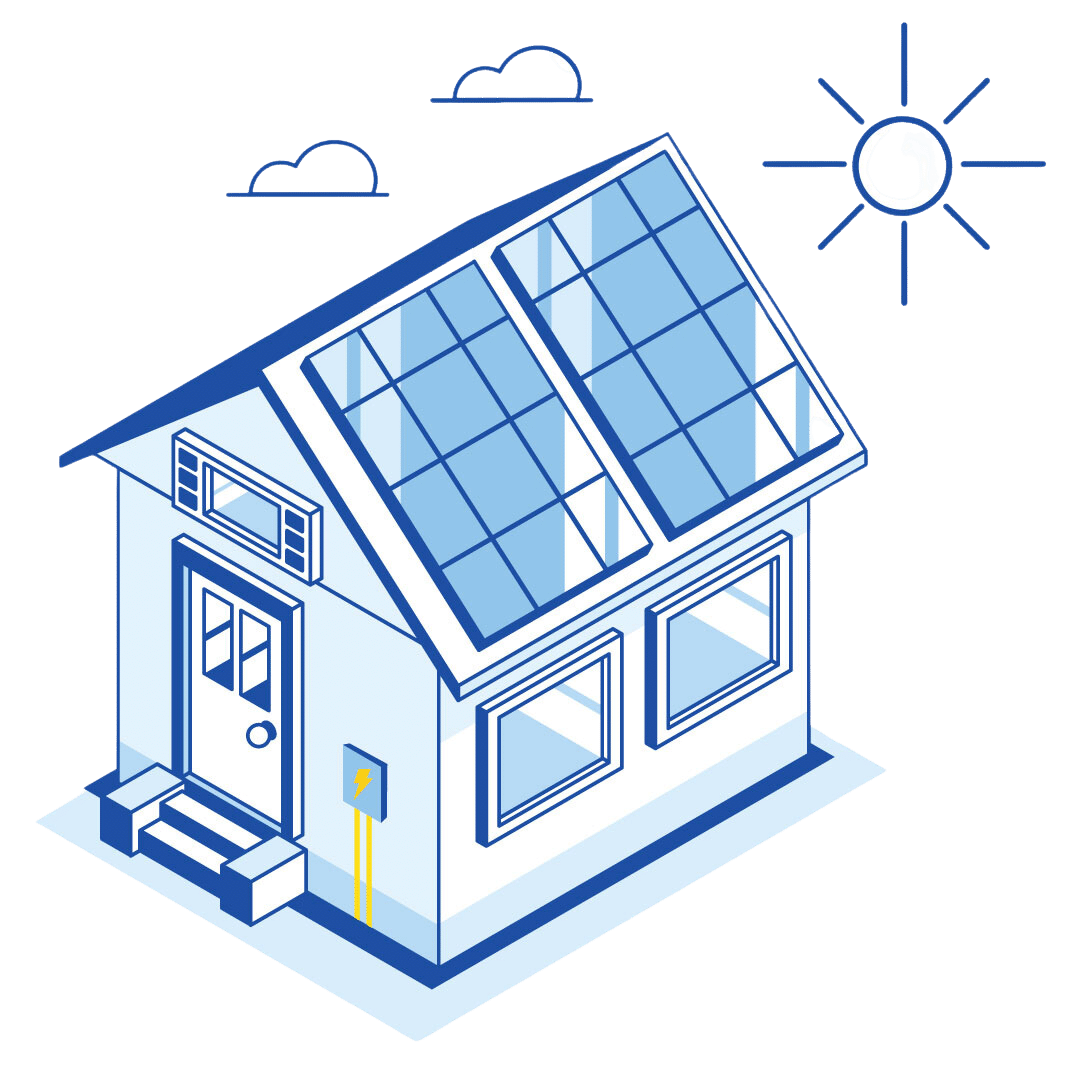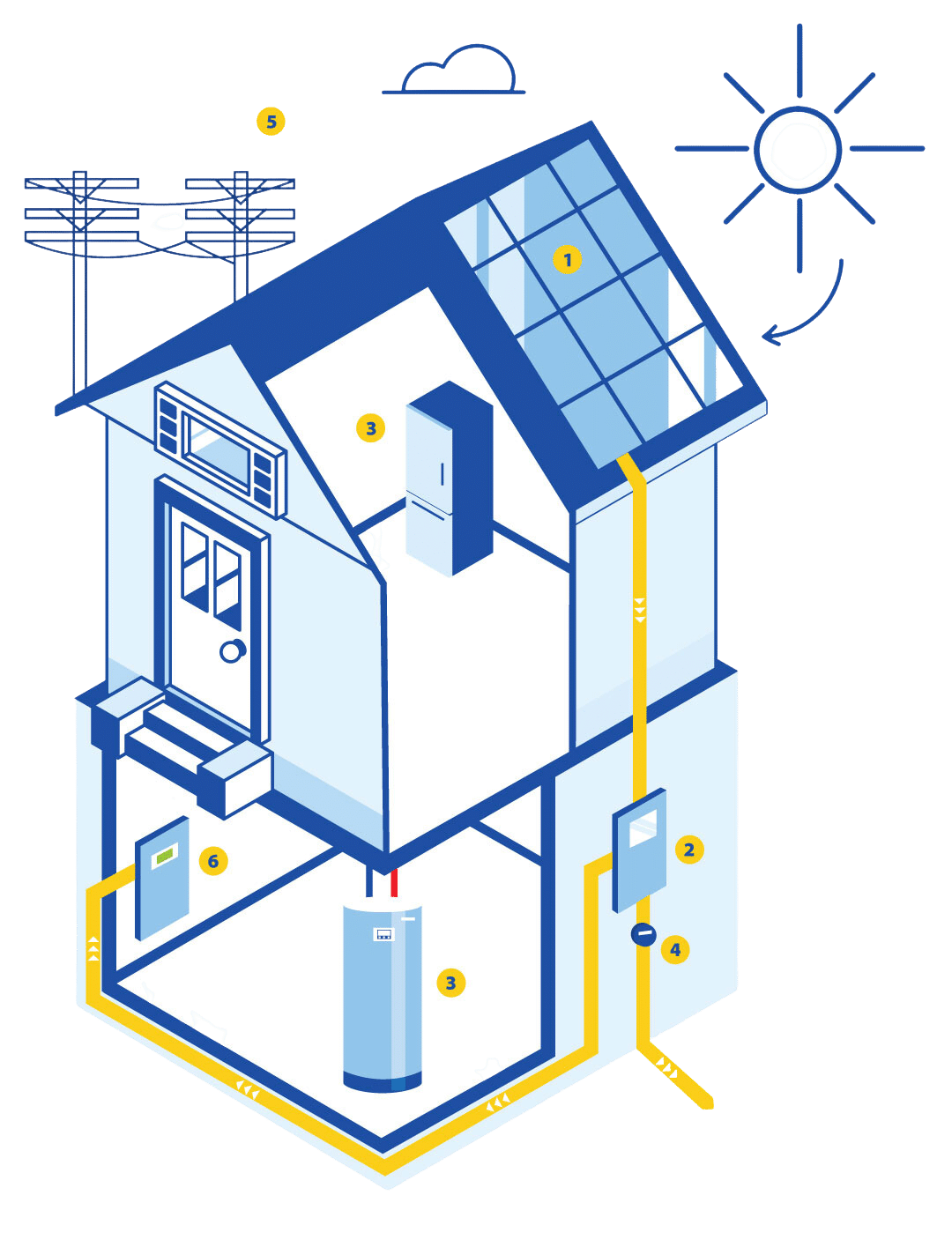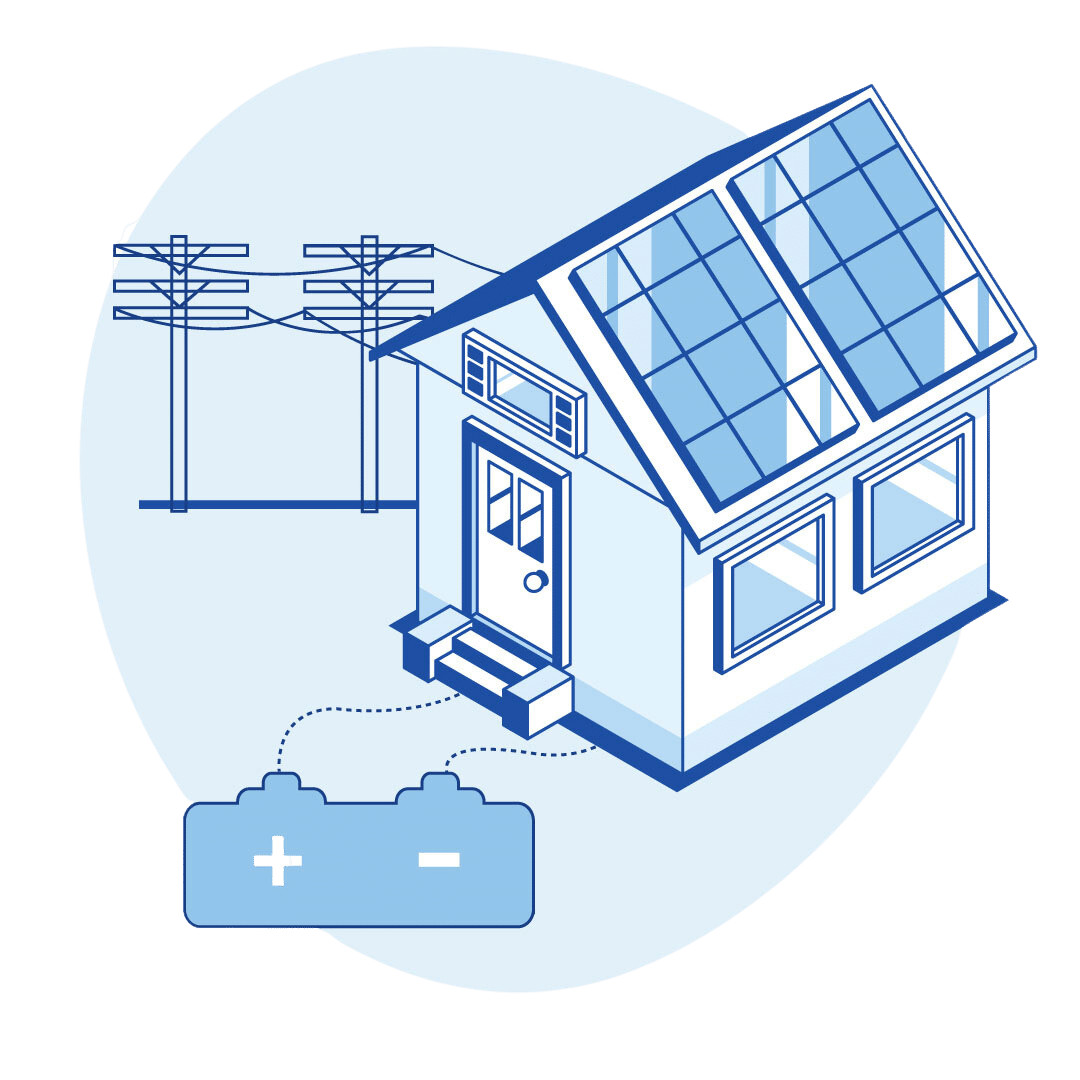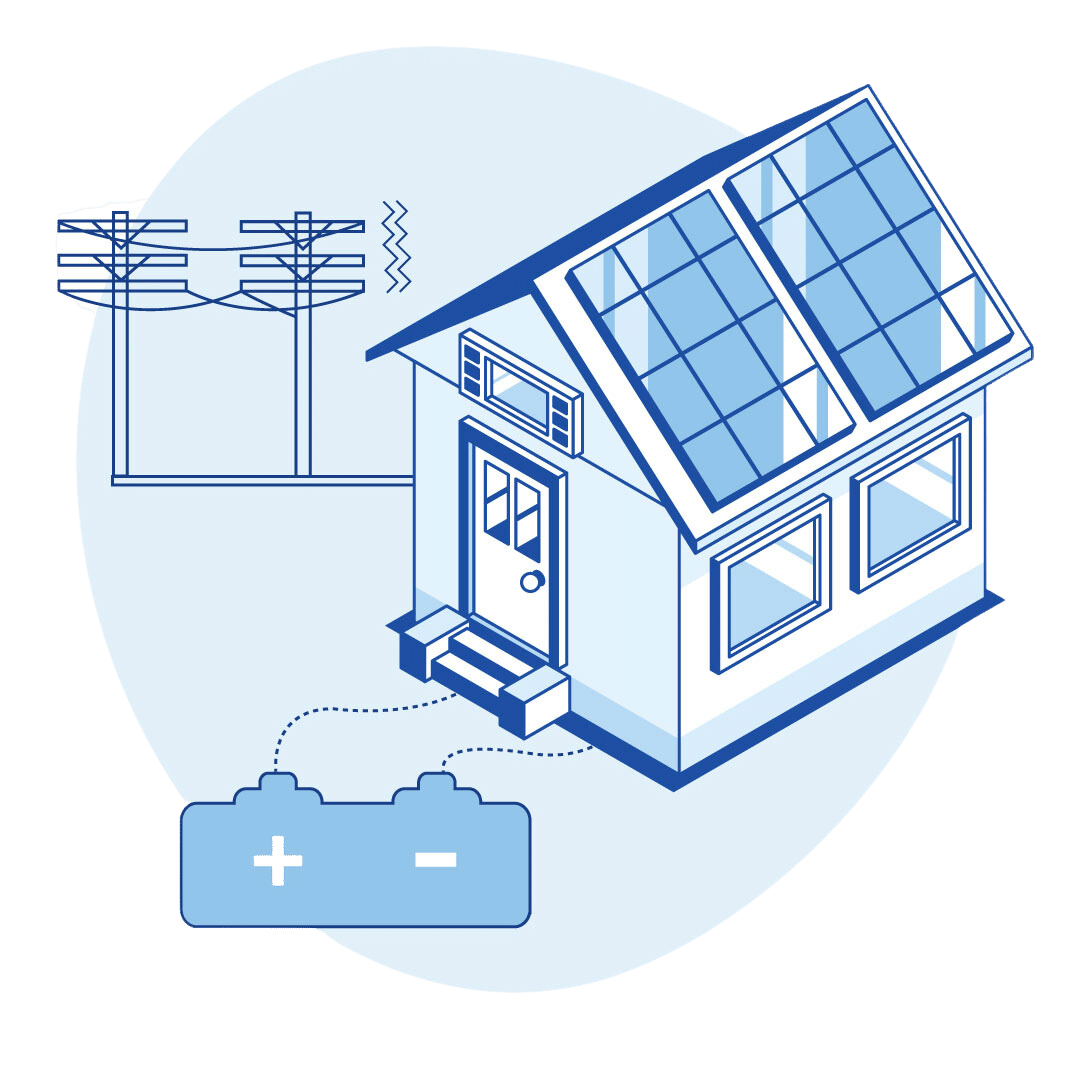A solar energy system on your home’s roof reduces or even eliminates your reliance on your local utility company for power. Sometimes, your system will generate more power than your home needs. When you generate excess power, your system will send it back to the grid.
To learn more about this process, visit our Solar PV page.

By including energy storage in their solar systems, homeowners experience even more freedom from the utility company. Including energy storage via battery backup in a solar system allows the homeowner to utilize their energy at different times. Excess kilowatt-hours can be saved and used later, rather than being sent back to the utility or wasted. Extra power is especially handy during an outage or times of high electricity demand.
Think about the battery in your car. When you are driving, your battery charges. This allows you to use devices like your radio without starting the engine. Similarly, a solar power system functions as an engine and alternator that charges your batteries and powers your home.
In Pennsylvania and New Jersey, homeowners often add battery backup to solar systems for two reasons: to maintain power during local blackouts (battery backup/emergency power) and to become completely independent from the utility (100% off-grid).
Solar panels collect molecules of sunshine, which are little packets of energy, and convert them into DC electric current.
DC to AC Inverter converts the direct current (DC) generated by a solar panel into alternating current (AC), that can be used to power appliances in your home. A special inverter can be used to also control battery charging and backup power to your home.
You choose which critical appliances to run when there is a grid blackout. Keeping your food fresh and your basement dry are typical priorities.
When the utility power is up, your home solar power system can actually cause your electric meter to spin backwards through a process called net metering. When your system produces more electricity than you are consuming, it feeds the excess electricity into the main power grid and you earn credit on your electric bill.
Once electricity generated by your residential solar power system is directed onto the power grid, it can then be used by someone else and adds to the overall total of kilowatt hours produced by a clean and renewable energy source (in this case, the Sun!) The power grid will also supply you with electricity during those times you are consuming more than your system is producing.
When the utility power is down, your critical loads will be run off your battery power. If a standard inverter (item 2 above) is used, a special charge controller will be installed with the batteries.

Power outages can be frustrating, particularly in New Jersey and Pennsylvania where they can occur at inconvenient times or last longer than expected. When Atlantic Coast storms disrupt the power grid, some homes may experience prolonged outages. However, the use of solar panels and batteries can provide greater independence and control during these situations.

Systems can be designed to automatically switch to an emergency mode or require homeowner action, but they typically do not allow full operation of everything in the home. However, critical appliances and conveniences can be supported, including:
To better prepare for power outages, contact us to connect with one of our solar experts.
With a well-designed solar energy system and battery storage, it’s possible to disconnect entirely from the grid and local utility. However, relying solely on solar power is an ambitious goal that requires careful planning and expert design. In our 19 years in business, we’ve done it for several homeowners, and we’d love to do it for you. However, several factors influence your eligibility for off-grid living.
We encourage off-grid customers to develop energy usage strategies that optimize their systems. This approach requires skill and experience since grid power is not an option. Energy conservation and efficiency should be incorporated into daily routines to avoid exceeding the system’s capacity. Maximizing this type of system provides families with a sense of self-sufficiency and minimizes their environmental impact. We offer expert consultation to inform decision-making and provide insight into the impact of an off-grid solar energy system on your lifestyle.

A Note About Battery Technology
Batteries for solar plus storage must be durable and reliable for their intended use. Not all batteries are suitable, so it’s important to ensure that they can withstand the environment. At Exact Solar, we offer a wide range of battery technologies and manufacturers to meet a wide range of needs. Depending on the goals of the battery project, a more basic, cost-effective lead acid battery scope may be optimal (similar to those used in cars). On most projects today, however, lithium Ion batteries are being used. These represent a more modern approach and offer additional benefits. Exact Solar works with Enphase, SolarEdge, Sonnen, Tesla, and several other battery brands. Exact Solar is always product/vendor agnostic, only recommending to our customers what we believe to be the best fit for each project.
To learn more about Exact Solar battery technology visit our contact page.
Join Our Mailing List
Refer and Earn!
Click below for details on how to refer a friend or family member to earn $500!
Privacy Policy | © 2025 Exact Solar, All Rights Reserved.